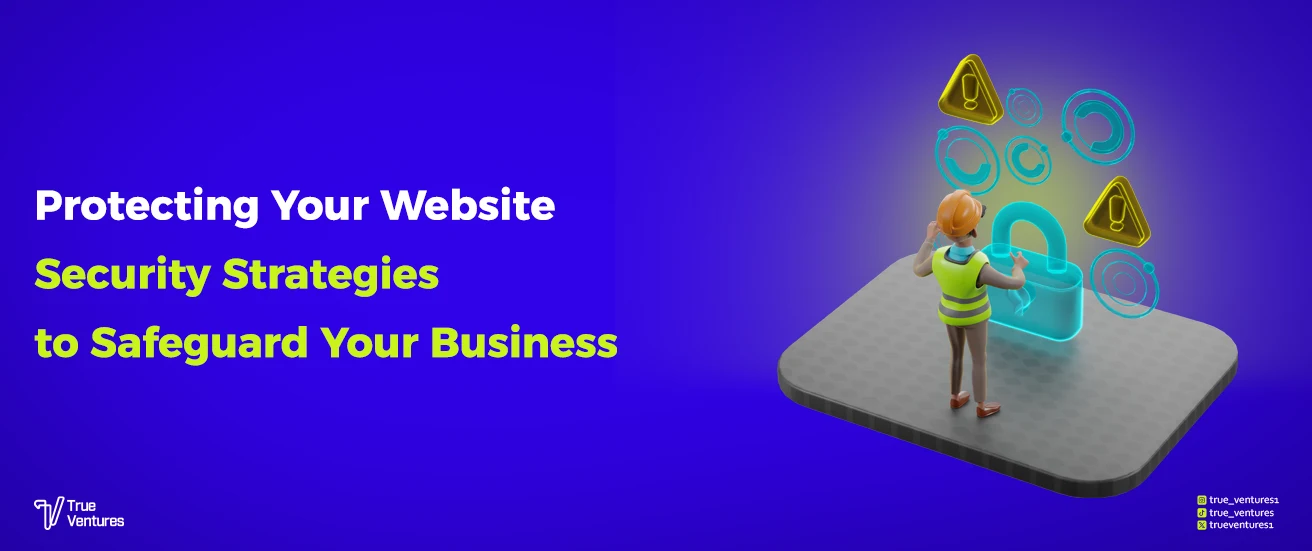Secure Your Website With Advanced Professional Protection November 19, 2025
Every day, new forms of hacking and cybercrime emerge, making website security more than just an extra step it’s a critical safeguard for the survival of any online business. Whether you’re running a small store or managing a large platform, your site is always at risk of losing sensitive data or facing sudden downtime that can damage your reputation and weaken customer trust.
Today’s visitors expect a safe and seamless experience above all else. Even a minor security flaw can drive them away in seconds, often never to return. On the other hand, when your website is protected with professional secure website solutions, it creates a positive impression, builds trust, and increases the chances of turning casual visitors into loyal customers.
Why Website Security Is a Business Essential

Every website faces multiple risks from hacking attempts and theft of sensitive data to complete service disruptions. These threats go beyond technical issues; they directly affect customer trust and the reputation of your brand. Just a single breach could expose personal or financial information, leaving your company vulnerable to legal challenges and significant revenue loss.
That’s why website security should never be seen as optional. It’s a strategic necessity to ensure business continuity and build customer confidence. One of the most critical areas to focus on is data protection for websites, since safeguarding customer information lies at the heart of every trusted relationship. The stronger your defenses, the more loyalty you inspire and the better your chances of staying competitive in today’s digital market.
Essential Steps to Secure a Website
Protecting your site from hacking attempts or exploited vulnerabilities starts with a few non-negotiable measures. First, always keep your operating systems, plugins, and software up to date. Delays in updates can leave the door wide open for attackers.
Another critical layer of website security is setting up a firewall. Acting as the first line of defense, it filters suspicious traffic before it ever reaches your server. But even with strong barriers in place, secure website solutions are incomplete without active monitoring. Continuous tracking of activity on your site allows you to spot unusual behavior early and address it before it escalates into a serious threat.
The Role of SSL Certificates in Website Security
SSL certificates are one of the cornerstones of modern website security. They create an encrypted channel between the browser and the website’s server, ensuring that no third party can intercept or manipulate the data being transferred. This encryption protects sensitive information such as passwords and payment details, while also giving visitors a sense of trust and safety when interacting with your site.
Beyond protection, SSL also has a direct impact on visibility. Search engines like Google prioritize websites that use SSL, viewing them as more secure and trustworthy, which can boost your rankings and attract more qualified traffic. Installing an SSL certificate isn’t just about data protection for websites it’s also an investment in your site’s credibility and growth.
For example, when you visit a site with an SSL certificate, you’ll see a padlock icon next to the URL in your browser. This simple signal instantly reassures users that their data is being handled securely.
WordPress Security: Practical Steps to Strengthen Your Site

Securing WordPress goes beyond simply installing plugins it’s about adopting a complete set of practices that safeguard your site and protect visitor data. Some of the most effective measures include:
- Using trusted WordPress security plugins like Wordfence or iThemes, which provide firewalls and real-time alerts against intrusion attempts.
- Customizing your login URL instead of relying on the default one, making it harder for attackers to target your site with password-guessing attacks.
- Performing regular backups, ensuring you can quickly restore your site in case of a breach or data loss.
These straightforward steps form the foundation of strong WordPress security, reducing risks while giving you greater peace of mind.
Data Protection for Websites: Safeguarding Your Customers’ Privacy
Protecting data on your website is one of the core pillars of running a successful digital business it’s the key to earning and maintaining customer trust. The first step is implementing modern encryption technologies to secure sensitive details such as passwords and payment information, ensuring they remain safe even if hackers attempt to access them.
Equally important is compliance with international regulations like GDPR, or local equivalents, which not only provide legal credibility but also help you avoid costly penalties. On top of that, every website should feature a clear and easy-to-understand privacy policy that explains how user data is collected and used. This kind of transparency strengthens your brand’s reputation and reassures customers that their personal information is in safe hands.
Ongoing Best Practices to Ensure Website Security
Keeping your website secure isn’t a one-time task it’s an ongoing process that requires constant attention and proactive measures. Among the most effective practices are:
-
Regular Security Updates
Always install updates for your CMS, plugins, and software as soon as they’re released. These updates often patch vulnerabilities that hackers could exploit, and delaying them puts your site at serious risk.
-
Cybersecurity Training for Your Team
Human error is one of the biggest security threats. Training your staff on the basics of digital safety—like managing passwords properly and recognizing phishing attempts turns them into an effective first line of defense.
-
Continuous Monitoring and Analytics
Use monitoring tools and analytics to track unusual activities on your site. Keeping an eye on traffic patterns or firewall alerts allows you to detect suspicious behavior early and respond before it escalates into a full-blown attack.
Important Note: Neglecting even the smallest of these practices can open the door to serious vulnerabilities, so consistency is key in maintaining strong website security.
The Next Step in Securing Your Website
At the end of the day, investing in website security is really an investment in your business continuity and your customers’ trust. Don’t wait for a breach to happen take proactive steps today to secure your website and safeguard valuable data. Remember, security isn’t a luxury; it’s a necessity for any digital business aiming to grow and stay competitive.
Start now with a practical step forward. Explore our web protection services and let our team provide the secure website solutions your business needs to thrive with confidence.



